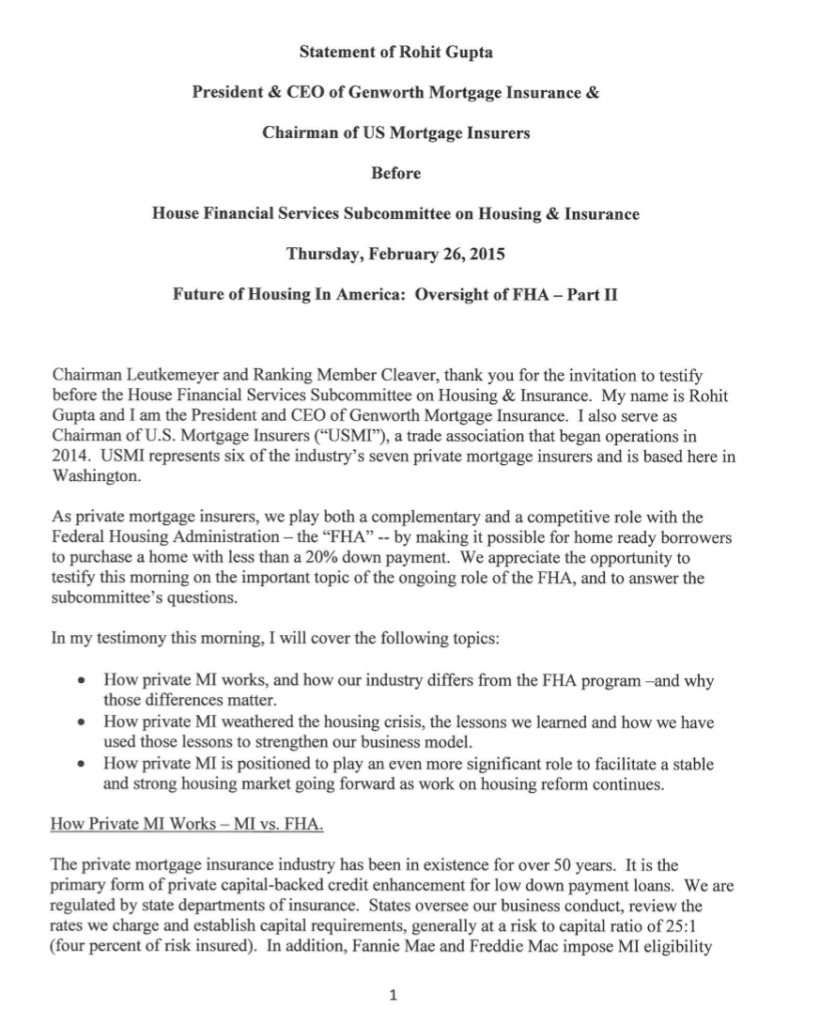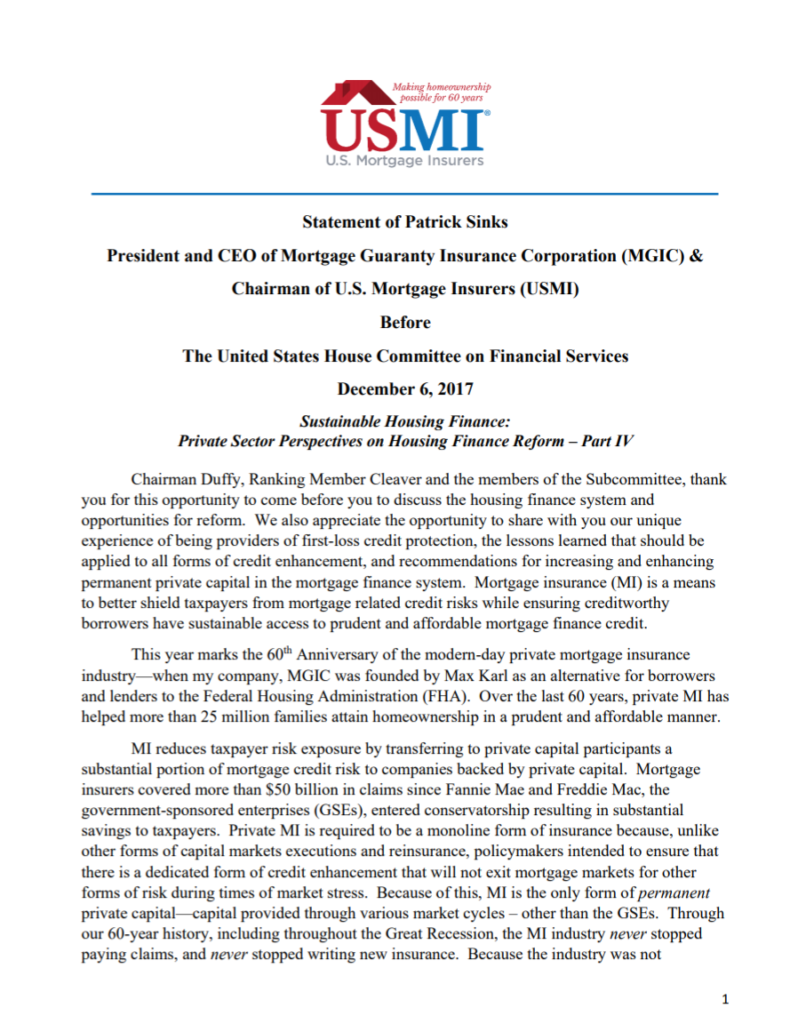USMI releases details on the developments and growth of private mortgage insurance credit risk transfer
WASHINGTON — U.S. Mortgage Insurers (USMI) today announced that private mortgage insurance (MI) companies transferred nearly $34 billion in risk on nearly $1.3 trillion of insurance-in-force from 2015 to 2019. USMI released details on the developments and growth of the MI credit risk transfer (MI CRT) market, which outlines the types of structures being used by the industry to transfer risk to reduce volatility and exposure of mortgage credit risk within the mortgage finance system, including to the government sponsored-enterprises (GSEs), and therefore taxpayers. It also finds that active adoption of CRT by private mortgage insurers has transformed the industry to help better insulate it from the cyclical mortgage market and enhanced their ability to be more stable, long-term managers and distributors of risk.
“Through innovative new MI CRT structures, the industry is taking additional steps to enhance MI resiliency and the risk protection provided to the conventional mortgage market. MI CRT demonstrates that MI companies are sophisticated experts in pricing and actively managing mortgage credit risk,” said Lindsey Johnson, President of USMI. “Private MI plays a critical function in the housing finance system by serving as the first layer of protection against mortgage defaults. MI is also one of the only sources of private capital that has been available through all market cycles. After the financial crisis, the MI industry improved its safety and soundness through enhanced capital and operational standards, which in turn made us more resilient to withstand severe economic stress.”
USMI examined the two main MI CRT structures: Reinsurance and Capital Markets. It found that mortgage insurers have executed 18 reinsurance deals since 2015, transferring over $25 billion of risk on over $530 billion of insurance-in-force. As for the Capital Markets structure, the industry introduced MI Insurance Linked Note (ILN) programs beginning in 2015. Since then, mortgage insurers have issued 19 ILN deals, transferring $7.8 billion of risk on over $730 billion ofinsurance-in-force.
“While the MI industry has distributed credit risk for decades, these innovative CRT structures adopted by the industry in 2015 have transformed it from a ‘buy-and-hold’ into an ‘aggregate-manage-and-distribute’ model,” said Johnson. “The financial risk management approach of private MI companies has become much more countercyclical and significantly benefits the housing finance system.”
Because private mortgage insurers typically hold a portion of the first loss there is an alignment of incentives that ensures quality underwriting continues to be done by the industry, which reduces investors’ risk exposure, and ensures quality control on risk for investors and within the broader financial system. The investor base in these transactions continues to grow exponentially as the frequency of transactions increases, and the MI CRT investors to date represent trillions of dollars of private capital under management that provides a stable, deep pool of liquidity for the market.
“The MI CRT structures underscore the resilient nature and benefits of MI and the private capital it supplies to the housing market, safeguarding taxpayers against mortgage defaults, and ensuring that the private MI industry will continue to play a vital role in the mortgage finance system,” added Johnson.
More information on MI CRT is available here.
###
U.S. Mortgage Insurers (USMI) is dedicated to a housing finance system backed by private capital that enables access to housing finance for borrowers while protecting taxpayers. Mortgage insurance offers an effective way to make mortgage credit available to more people. USMI is ready to help build the future of homeownership.













